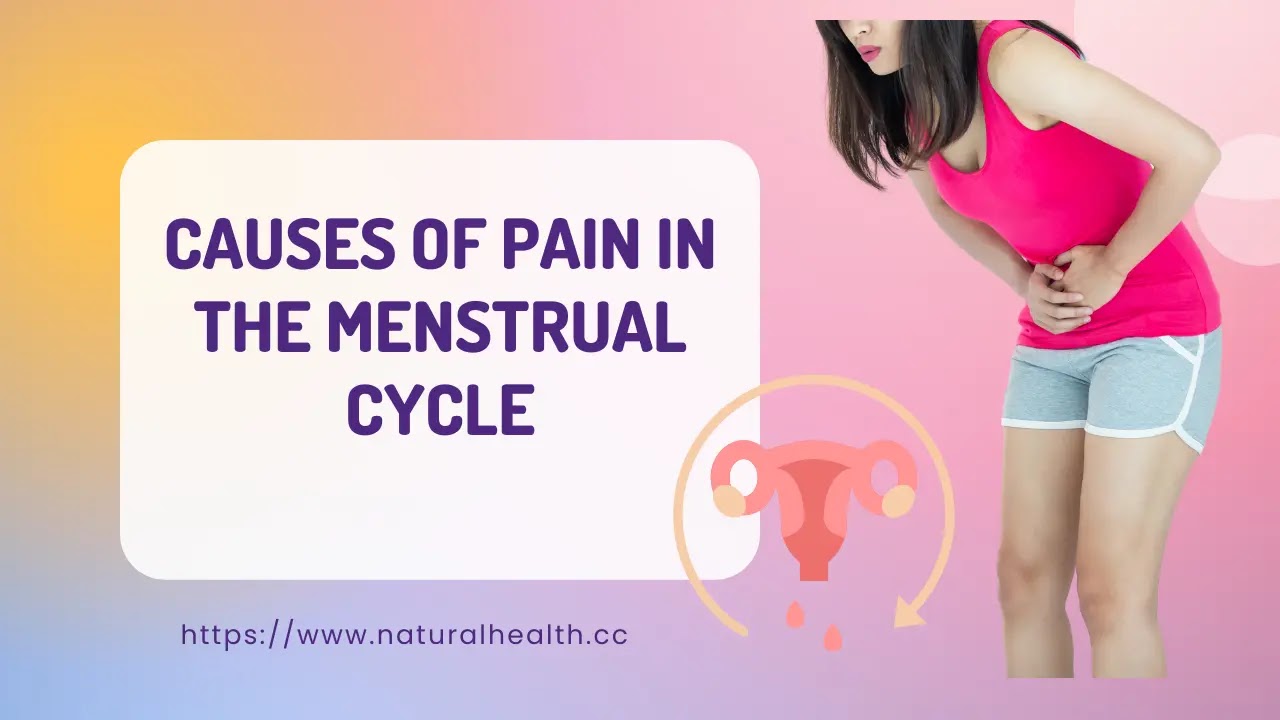
Causes of pain in the menstrual cycle Have you noticed that your period is accompanied by flatulence in the abdomen? Do you suffer from her pain every time? Have you ever pondered the reason and remedy? The most important answers to your questions are as follows:
Every month, women around the world go through a period that may be difficult for some, which is the period of the menstrual cycle, where women feel cramps and contractions of varying severity, accompanied by bloating and pain during the different stages of the menstrual cycle.
menstrual pain
Many women suffer from pain associated with the menstrual cycle, and the severity of these pains varies from one woman to another, as follows in detail:
- 1. Causes of menstrual pain
- It is normal to feel some pain during the menstrual cycle, and although scientists have not yet come to know the reasons for the different severity of menstrual pain among women, they believe that the causes of pain are often:
- Increased circulatory activity in some women than usual.
- After the birth of the first child.
- Age stage i.e. this is the girl's first menstrual cycle or the girl is under the age of 20.
- Excess production of certain hormones or hypersensitivity to prostaglandins, a hormone that has a direct effect on the uterus.
- Some tissues develop in the uterus, such as when suffering from endometriosis, and the use of various contraceptives.
- 2. How to reduce menstrual pain instantly
If the pain is moderate or mild, you can reduce it or even get rid of it completely if you follow these natural methods:
- warm bagpipe
You can warm the belly with a hand-made bowl of rice. If you do not have a hot water bottle, make it by following the following steps:
- Take two pieces of cloth and sew them together from the ends, leaving room at the end to allow you to insert some rice.
- Close the vent and heat your handmade bottle in the microwave for a few minutes.
- Allow the bottle to cool slightly or wrap it in a towel before placing it on your stomach to reduce the heat.
- Aromatherapy massage
Try to use essential oils such as violet oil by following the following:
- First, dilute the essential oil with a lighter oil, such as almond or olive oil.
- Massage the abdomen, back and sides with this oil for 20 minutes and the pain will usually disappear immediately.
- Other treatments
You can resort to other solutions such as:
- Use your usual pain relievers.
- Avoid certain foods and drinks that may exacerbate cramps, such as fatty or salty foods or alcohol.
Bloating and menstruation
Many women begin to feel flatulence, or general body bloating, a few days or even two weeks before their period.
This puff is one of the symptoms of premenstrual syndrome, and this feeling may continue to accompany the woman during the first days of the menstrual cycle, so what are the causes of this puff? And how do we deal with it?
1. Causes of flatulence during menstruation
Abdominal bloating and the constant feeling of fullness at the beginning and in the menstrual cycle, such as changes in certain hormones such as progesterone and estrogen, are usually caused by things like:
- Forcing the uterus to shed its new lining due to a decrease in the hormone progesterone.
- Stimulating the body to retain more fluids and salts so that the cells swell a little with their excess water content.
Flatulence is often at its worst on the first day of your period.
2. Ways to get rid of the menstrual puff
There are many daily lifestyle changes that may help a woman relieve bloating that may accompany her period, such as:
- Avoid certain foods
The following foods should be avoided:
- Salty foods, whether those sprinkled with salt during cooking or canned foods that contain large amounts of salt and sodium.
- Foods rich in carbohydrates such as white flour and sugar may raise the level of blood sugar, which may stimulate the kidneys to retain more amounts of sodium and refrain from excreting it with the urine.
- Eat some foods
It is recommended to focus on eating the following foods:
- Eat foods rich in potassium, as one study indicates that potassium helps reduce sodium levels and diuresis. Foods rich in potassium include the following:
- spinach;
- Banana.
- sweet potato.
- avocado
- Eating foods that help diuresis and thus get rid of excess fluids, such as:
- asparagus ;
- pineapple;
- peach;
- Option.
- ginger;
- the Garlic.
- Drink more water Although this may not seem logical at first glance, drinking more water can help the kidneys do their jobs better and get rid of the extra water faster.
- Other treatments
Other treatments include:
- Get at least 2.5 hours of regular exercise per week.
- Taking contraceptive pills, as a study noted that contraceptive pills may relieve menstrual symptoms, but they should not be taken without consulting a doctor first.
When should you go to the doctor's?
The following is an explanation of the most prominent cases that require resorting to a doctor:
- 1. When does pain warrant medical intervention?
Pain requires medical intervention in the following cases:
- Pain that prevents you from carrying out your normal daily activities.
- The pain worsened over time, and the bloody secretions increased significantly and abnormally.
- You are over 25 years old and have recently started experiencing severe period pain.
- 2. When does a murmur warrant medical intervention?
If the feeling of bloating effects or hinders the woman from performing her daily activities, or if the bloating continues even after the end of the days of her period, it is best to consult a doctor, as the bloating may be an indication of serious problems.
